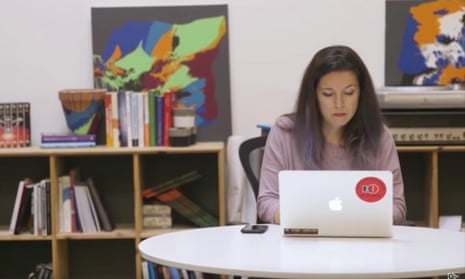‘Quitting smoking is easy,” said Mark Twain. “I’ve done it hundreds of times.” Much the same goes for smartphones. As increasing numbers of people begin to realise that they have a smartphone habit they begin to wonder if they should do something about the addiction. A few (a very few, in my experience) make the attempt, switching their phones off after work, say, and not rebooting them until the following morning. But almost invariably the dash for freedom fails and the chastened fugitive returns to the connected world.
The technophobic tendency to attribute this failure to lack of moral fibre should be resisted. It’s not easy to cut yourself off from a system that links you to friends, family and employer, all of whom expect you to be contactable and sometimes get upset when you’re not. There are powerful network effects in play here against which the individual addict is helpless. And while “just say no” may be a viable strategy in relation to some services (for example, Facebook), it is now a futile one in relation to the networked world generally. We’re long past the point of no return in our connected lives.
Most people don’t realise this. They imagine that if they decide to stop using Gmail or Microsoft Outlook or never buy another book from Amazon then they have liberated themselves from the tentacles of these giants. If that is indeed what they believe, then Kashmir Hill has news for them. She’s an American tech journalist who writes for Gizmodo and who recently conducted a fascinating six-week experiment that you might describe as “digital veganism”. She set out to answer the question of whether it was possible to live a normal life without using the services of Amazon, Google, Facebook, Microsoft and Apple. So, over five weeks, she blocked her access to each one in turn and then, in the final week, cut herself off from all of them. And she reported what she learned as she went.
Lots of people have tried various kinds of digital detox, by dropping Google or Facebook for a week, say, but Ms Hill did it really thoroughly. She had a geek collaborator, Dhruv Mehrotra, who created a special virtual private network (VPN) for her through which all of the approximately 2m data packets she would send in a normal day had to pass before heading out on to the net. The special thing about the VPN was that it would stop every packet addressed to any domain or server operated by the particular tech giant that Ms Hill was seeking to avoid that week. And it was this comprehensive blocking technology that really revealed the ubiquity of the tech giants’ grip on our networked world.
The scale of this grip is astonishing. Amazon owns 23.22m domains, Microsoft has 21.57m, Apple runs 16.78m and Google 8.72m. Facebook, surprisingly, turns out to have only a measly 122,880. What this means is that almost every interaction you are likely to have with the internet will at some stage touch one or more of these domains, in which case Ms Hill’s VPN would stop that interaction in its tracks. You may think that a particular website has nothing to do with any tech giant, but then it turns out that the site is actually hosted on Amazon’s or Microsoft’s cloud-computing services.
In week one, Ms Hill blocked her access to Amazon and discovered “that it’s simply not an option to block Amazon permanently... it would wall me off from too many crucial services and key websites that I can’t function without for both personal and professional reasons”.
Week two was Facebook, which was relatively easy to block technically (after all, it only has 122,800 domains), but was socially disabling (all those friends and relations and the ordinary business of life). Week three was Google. “My overall impression,” she wrote, “is that Google touches almost everything on the internet. I run into it on almost every site and every app that I use. Blocking Google from my life was almost as hard as blocking Amazon, on which much of the non-Google internet relies.” (A key element here was the dominance of Google Maps, on which millions of other sites rely.)
And so it went on: much the same applied for weeks four (Microsoft) and five (Apple). And as for week six, when Ms Hill tried to do without all of the five giants, well, you can guess the outcome. What she has demonstrated in this remarkable piece of journalism is that our lives now run on a technical infrastructure that is owned, operated and controlled by a handful of giant corporations, from which there is currently no escape unless you want to hibernate. In which case, we have to come to terms with that celebrated aphorism of Marshall McLuhan: we shape our tools and afterwards they shape us. Kashmir Hill has sketched the shape we’re now in. It’s not a pretty sight.
What I’m reading
Get your facts right
“I Was a Facebook Fact-Checker. It Was Like Playing a Doomed Game of Whack-a-Mole.” Surprise, surprise: Snopes.com and AP have decided that fact-checking for Facebook is a waste of (their) time and energy.
See the light
“Let there be light switches” is a lovely meditation by designer Dan Hill on the significance of activity-sensing lights.
Cell of the century
Jason Kottke has published the best video I’ve ever seen – a six-minute time-lapse video showing a single cell developing into a salamander. It’s basically a cell running the program in its DNA.

